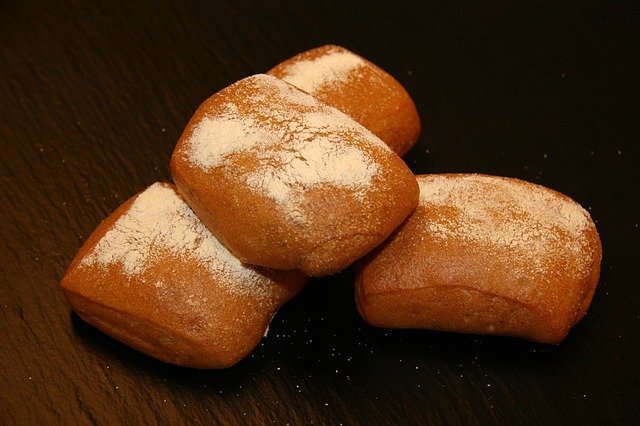“It was a dark and stormy night,” so reads most novels. But in this novel, it’s true.
Jesus had gone from the southwest side of the Lake of Galilee and taken his disciples to the north, north-eastern area for some rest and relaxation. Except that the crowds chased him there after they had seen Jesus heal the sick.
When Jesus landed and saw the crowds, instead of sighing in exasperation and exhaustion, he welcomed them and had compassion on them, because they were like sheep without a shepherd (Mk 6:32-34). So went to a small hill and sat down, and taught them about the kingdom and healed those who needed healing (Lk 9:10-11).
But dinner time came and the crowds had swelled to 5000 men, besides women and children. He approached Philip and asked plainly, “Where can we buy bread for these people to eat?”
I’m sure Philip was started. Certainly they had only enough money to take care of themselves. But to buy bread for all these thousands? It’s not like a mega restaurant was available or a super-mart, even if they did have the money.
Philip pointed out the obvious, calculating it in his head. “It would take 8 months wages to buy bread!”
Jesus seemed unphased. Then he sent them out to find if anyone had bread to share.
No one did. They had been in such a rush that people didn’t have time to prepare.
But a little boy had loaves and fishes and the faith to give it all.
Andrew brought him to Jesus. Because bringing people to Jesus was what Andrew did.
And we know the rest of the story. Jesus broke bread and blessed it and gave it to his disciples who gave it to the people. Then he blessed the fish and broke it, giving it to his disciples who gave it to the people.
All ate and were satisfied and at the end, each disciple was left standing with a basket of leftovers in their hands.
—-
As I read this story I have a variety of thoughts.
- Did the other apostles ever get jealous that they weren’t part of Jesus’ inner circle – Peter, James and John? Because some like Andrew had such faith and brought people to Jesus, yet little is said of him. And Philip seems to be regularly sought out by Jesus, to follow Jesus and to answer questions. And half the apostles we know almost nothing about.
- Luke says they went to Bethsaida after they left Capernaum. Then Jesus sent his disciples to the boats to go to the other side, Mark says Bethsaida and John says back to Capernaum. I’m assuming that Mark is saying go back to the village of Bethsaid as they were on a grassy plain, and then back to Capernaum.
- Multiplication miracles. I’ve had friends experience these, ironically with many witnesses–the peanut butter and jelly miracle, the cookie miracle, the soup miracle, the Christmas toy miracle (Heidi Baker), the tuna fish sandwich miracle. Miracles aren’t gone away. Strangely with each of those miracles there was a lack, but no prayers necessarily for the supernatural. They just happened.
- Jesus gathered the leftovers and said, “Let nothing be wasted.” Jesus stewarded the resources given to him. It’s strange that God would do a miracle that was even beyond what was needed. Maybe to provide more resources for the apostles, maybe to show His extravagant generosity and abundance, or maybe that so when each apostle held in their hands a basketfull of bread and fish, they would have confront the reality of Jesus’ identity.
- After this great and amazing miracle, Jesus sent them into the boat to cross the whole length of the Galilee. Surely he saw the storm clouds. They were experienced in this area. And yet this is what Jesus sent them into. He wasn’t just one who always directed people to the easy, but he was always with them, even when it necessitated walking on water.

